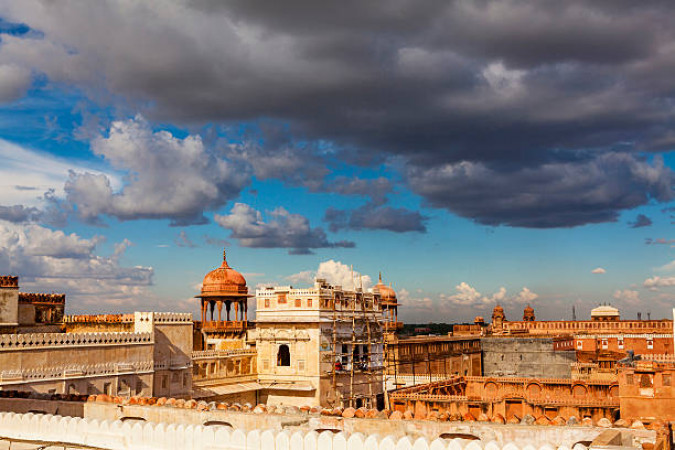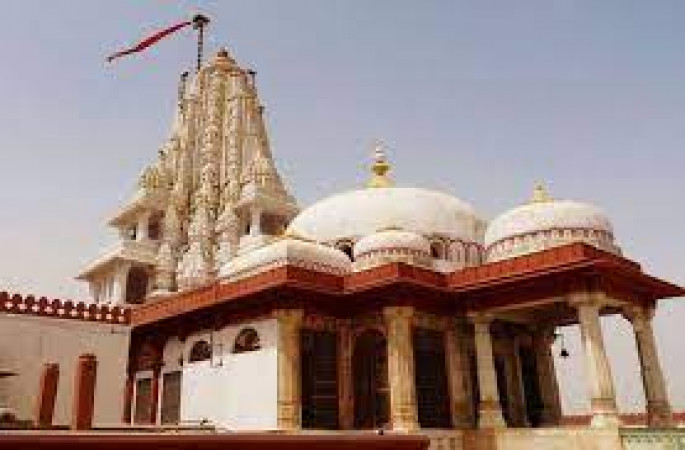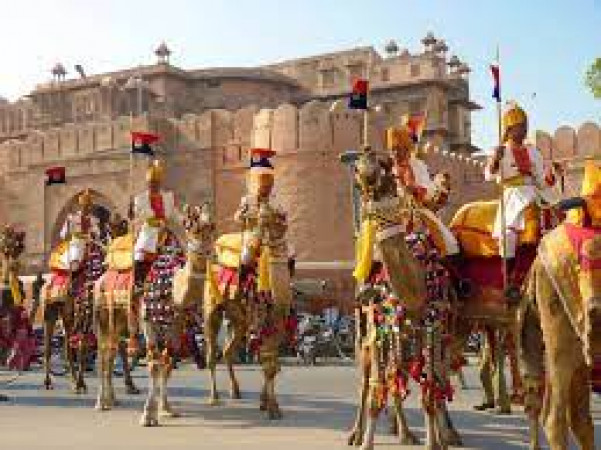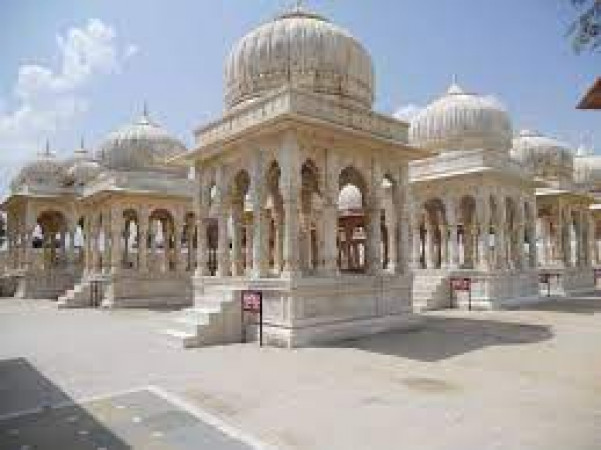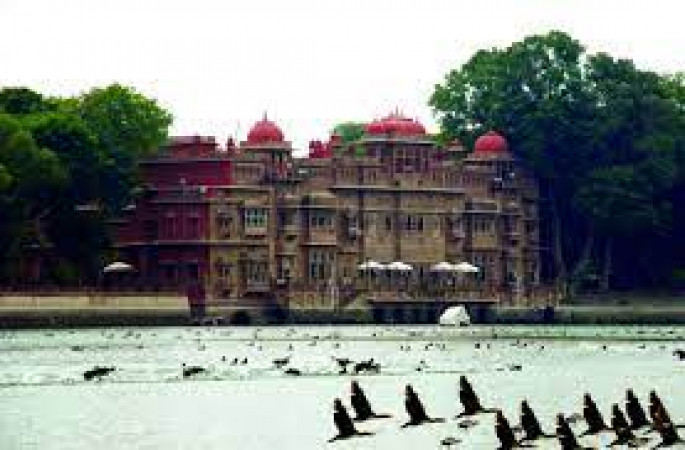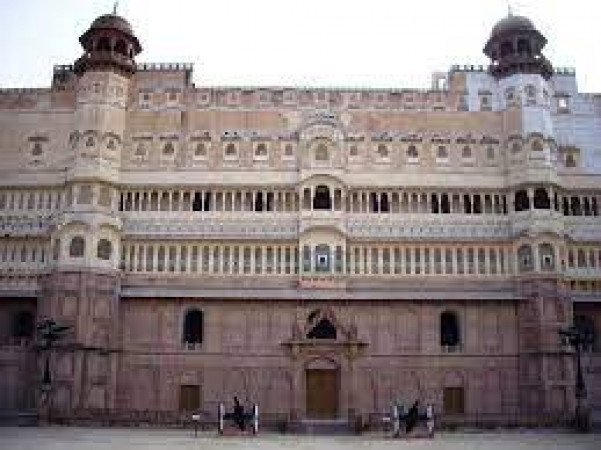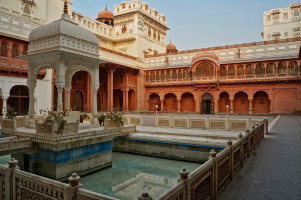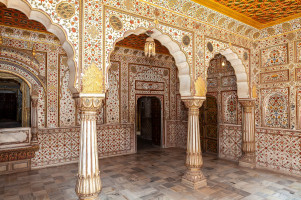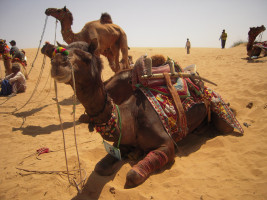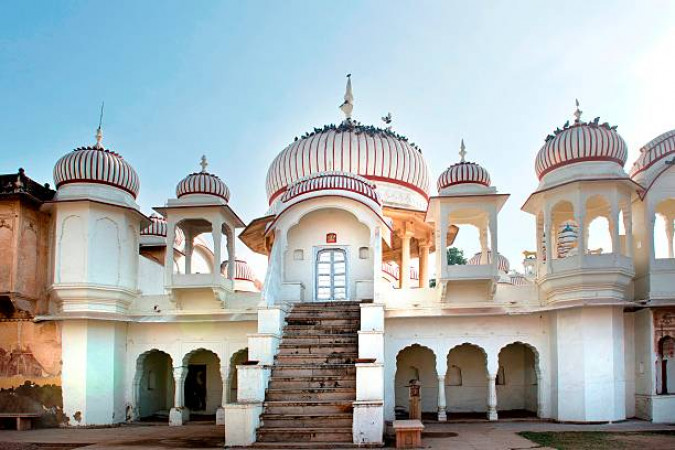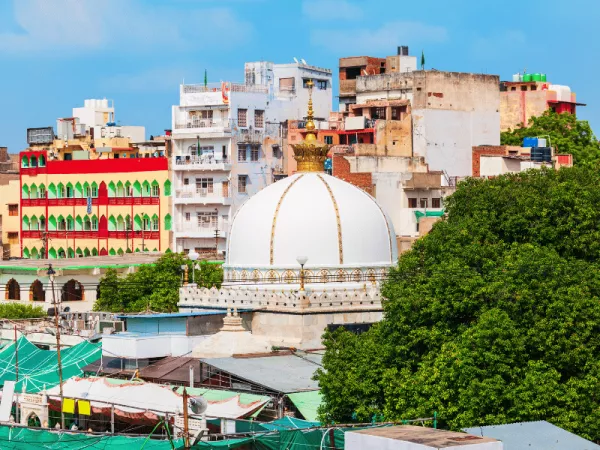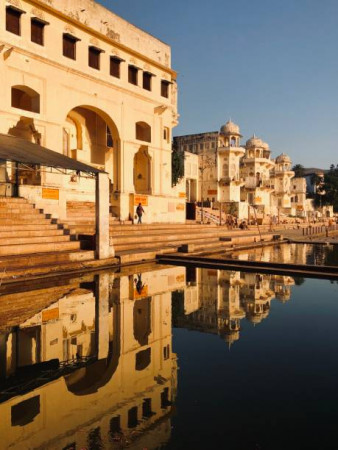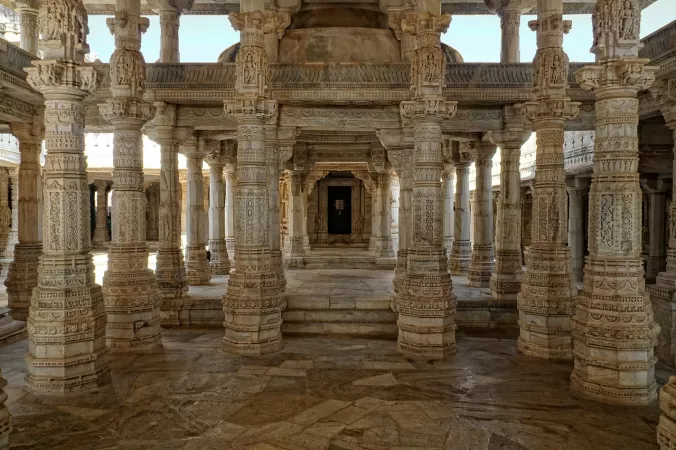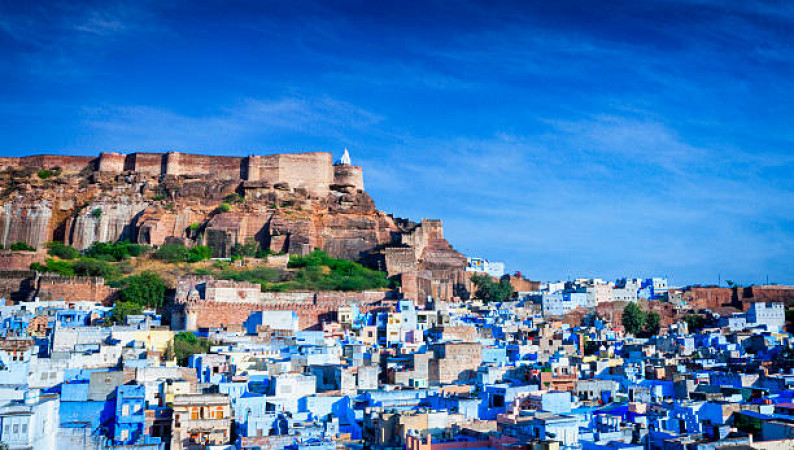Bikaner Travel Guide
Bikaner, a city in the northwest of India, is a vibrant destination known for its rich history, stunning architecture, and cultural heritage. Founded in the 15th century by Rao Bika, Bikaner boasts a unique blend of Rajputana and Mughal influences, making it a must-visit for history buffs and architecture enthusiasts. The city is famous for its intricately designed havelis, majestic forts, and mouth-watering local cuisine, making it a delightful destination for travelers seeking an authentic Indian experience.Top Attractions in Bikaner
- Junagarh Fort
- Lalgarh Palace
- Karni Mata Temple
- National Research Centre on Camel
- Gajner Palace
Bikaner is Famous for
Camel Safaris and Karni Mata Temple's Rat Temple are the unique selling points of Bikaner.Top Attractions in Bikaner
- Exploring the magnificent Junagarh Fort
- Visiting the sacred Karni Mata Temple
- Indulging in a camel safari in the Thar Desert
- Sampling the delectable Bikaneri Bhujia
- Shopping for traditional Rajasthani handicrafts at local markets
What's Great about Travelling to Bikaner?
- Rich cultural heritage and historical significance
- Unique camel safari experiences
- Authentic Rajasthani cuisine
- Charming havelis and forts to explore
What's Not So Great about Travelling to Bikaner?
- Extreme temperatures during summer months
- Limited nightlife options
- Challenges for travelers not accustomed to spicy food
Travel Tips for Bikaner
- Carry sufficient sunscreen and water to beat the desert heat
- Respect local customs and traditions while visiting temples
- Book camel safaris and accommodation in advance during peak tourist seasons
- Try the famous Bikaneri sweets and snacks
Important Bikaner trip information
- Ideal Duration: 2-3 days
- Best Time to Visit: October to March
- Nearby Airports and Railway Stations: Nal Airport, Bikaner Junction
Top 14 Places to visit in Bikaner
Per Person
17,980
*EXCLUDING APPLICABLE TAXES Per Person
18,790
*EXCLUDING APPLICABLE TAXES Per Person
18,970
*EXCLUDING APPLICABLE TAXES Per Person
14,980
*EXCLUDING APPLICABLE TAXES Per Person
12,999
*EXCLUDING APPLICABLE TAXES 4.8 Ratings
( 246 Reviews )
( 246 Reviews )
Per Person
18,000
*EXCLUDING APPLICABLE TAXES 5.0 Ratings
( 157 Reviews )
( 157 Reviews )
FAQ's on Bikaner
Q1: What is the best time to visit Bikaner?
The best time to visit Bikaner is from October to March when the weather is pleasant and ideal for exploring the city. This period also coincides with the famous festivals like the Camel Festival in January and the Gangaur Festival in March, offering a rich cultural experience for visitors.
Q2: Do I need a visa to travel to Bikaner?
Most visitors to Bikaner will need a valid Indian visa to enter the country. Make sure to check the specific visa requirements based on your nationality before traveling. Some nationalities may be eligible for e-Visas or visa-on-arrival, but it's advisable to confirm this information well in advance.
Q3: What are the must-visit attractions in Bikaner?
Bikaner is renowned for its majestic Junagarh Fort, the Karni Mata Temple home to thousands of rats, the exquisite Lalgarh Palace, and the vibrant markets of the Old City. Don't miss exploring the National Research Centre on Camel and enjoying a camel safari in the Thar Desert for an unforgettable experience.
Q4: Is Bikaner a safe place to travel?
Bikaner is generally a safe destination for travelers. However, like any other place, it's essential to be cautious and aware of your surroundings, especially in crowded areas and at night. Avoid isolated areas and take necessary precautions to safeguard your belongings.
Q5: What is the local currency in Bikaner and can I use credit cards?
The local currency in Bikaner is the Indian Rupee (INR). While credit cards are accepted at some hotels, restaurants, and larger stores, it's advisable to carry cash for smaller establishments and local markets. ATMs are widely available in the city for convenient currency exchange.
Q6: What is the local cuisine like in Bikaner?
Bikaner is famous for its savory snacks like Bhujia and Rasgullas, along with traditional Rajasthani dishes such as Dal Baati Churma and Gatte ki Sabzi. The local cuisine is rich in flavors, spices, and dairy products. Vegetarian options are prevalent, and foodies will enjoy exploring the diverse culinary offerings in the city.
Q7: What transportation options are available in Bikaner?
In Bikaner, travelers can avail of public buses, auto-rickshaws, and cycle rickshaws for local transportation. Taxis and car rentals are also available for more comfortable travel within the city and to nearby attractions. Exploring Bikaner on foot or by bicycle is a great way to experience the local culture up close.
Q8: Are there any cultural norms or etiquette I should be aware of when visiting Bikaner?
When visiting Bikaner, it's important to respect local customs and traditions. Dress modestly, especially when visiting religious sites, and remove shoes before entering temples. Greeting people with a 'Namaste' is appreciated, and it's customary to accept or offer food and drinks with the right hand. Avoid public displays of affection and be mindful of photography restrictions in certain areas to ensure a respectful and enjoyable visit.
Q9: I am a travel agent. How can I buy travel leads of Bikaner?
Register yourself as a travel agent at agents.tripclap.com and then you can buy travel leads to Bikaner once your account is approved. For more details contact our support team at +91-8069186564 or support@tripclap.com
